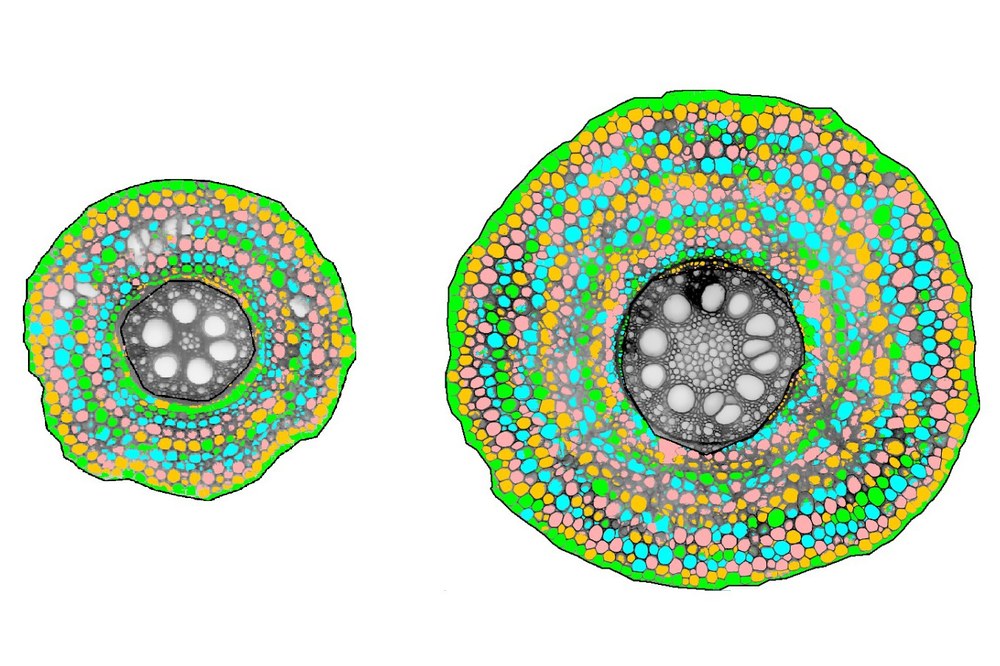A novel trait to increase drought tolerance by reducing the metabolic cost of soil exploration

Maize root imaging
PD:
Jonathan Lynch, Penn State University
Co-PDs:
Kathleen Brown, Penn State University
Shawn Kaeppler, University of Wisconsin
Students:
Jennifer Yang, Penn State University
We have recently discovered that genetic variation for the number of root cortical cell files (CCFN) in maize is associated with substantial variation in the metabolic costs of soil exploration, and thereby root growth, water acquisition, and yield under drought. The overall objective of this project is to evaluate and develop this trait as a tool to improve drought tolerance in maize and eventually other crops. Specifically, we will:
- Confirm the physiological utility of CCFN for root growth, soil exploration, and water capture from drying soil in controlled environments.
- Identify genes underlying natural variation in CCFN and develop stocks that will support mechanistic assessment of its regulation and utility.
- Evaluate the utility of CCFN for drought tolerance in the field in rainout shelters in PA and a field research facility in AZ.
Defining and understanding traits enhancing drought tolerance is of considerable importance for keeping American agriculture competitive while ending world hunger, as well as adapting to climate change, two of NIFA's grand challenges. CCFN could be an entirely new tool for improving drought tolerance of crops. In addition to drought, CCFN may be useful in the acquisition of limiting soil nutrients such as phosphorus and nitrogen. While this project focuses on maize, we have observed variation for CCFN in rice, sorghum, and common bean, so this trait may have broad utility. This project therefore addresses novel scientific issues that are of demonstrable relevance to human welfare.

